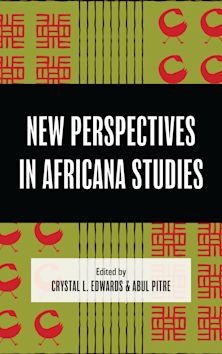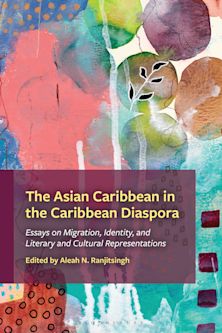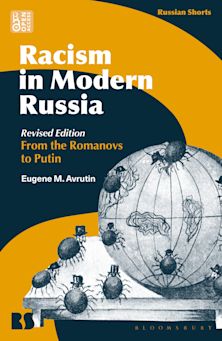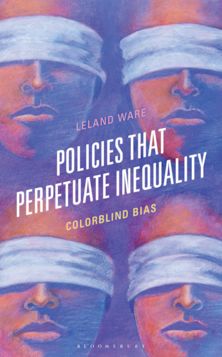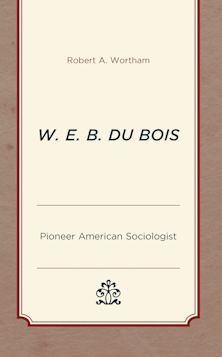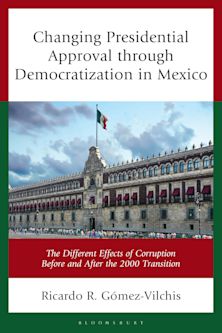- Home
- ACADEMIC
- Politics & International Relations
- Race and Ethnicity
- Charles H. Houston
Charles H. Houston
An Interdisciplinary Study of Civil Rights Leadership
James L. Conyers Jr. (Anthology Editor) , Derek W. Black (Contributor) , John Brittain (Contributor) , Malachi Crawford (Contributor) , Lewis R. Gordon (Contributor) , Katherine Bankole Medina (Contributor) , Christel N. Temple (Contributor) , Julius E. Thompson (Contributor) , L. Darnell Weeden (Contributor) , Cary D. Wintz (Contributor)
Charles H. Houston
An Interdisciplinary Study of Civil Rights Leadership
James L. Conyers Jr. (Anthology Editor) , Derek W. Black (Contributor) , John Brittain (Contributor) , Malachi Crawford (Contributor) , Lewis R. Gordon (Contributor) , Katherine Bankole Medina (Contributor) , Christel N. Temple (Contributor) , Julius E. Thompson (Contributor) , L. Darnell Weeden (Contributor) , Cary D. Wintz (Contributor)
You must sign in to add this item to your wishlist. Please sign in or create an account
Description
This study seeks to examine the life and work of Charles Hamilton Houston and the scope of this project will focus on the implementation and organization of the proposed plan in three ways: philosophical ideas, constructive engagement, and lasting contributions of this legal scholar activist. When compiling scholarly articles for this volume, the challenge was examining not just legal precedents of Houston, but his contributions to the study of civic engagement, with emphasis on privilege, racism, disparity, and educational philosophy.
Table of Contents
James L. Conyers, Jr.
Part I. Philosophical Foundations
Chapter 2: In Defense of Voluntary Desegregation: All Things Are Not Equal
Derek W. Black
Chapter 3: “A Lawyer is either a social engineer or a parasite to society”
John Brittain
Chapter 4: What the Right Learned from Charles Houston That the Left Did Not
Lewis R. Gordon
Part II. Constructive Engagement
Chapter 5: The Historical Legacy of the Nadir and Houstonian Jurisprudence in the
Origins of the Modern Civil Rights Movement
Katherine Bankole Medina
Chapter 6: Charles Hamilton Houston and Post-New Negro Movement Authority:
The Socio-Literary History of a Legal Warrior
Christel N. Temple
Part III. Enduring Contributions
Chapter 7: Charles Hamilton Houston and the Struggle Against Lynching in the
United States, 1930-1939
Julius E. Thompson
Chapter 8: African American Voices Should Speak Loudly and Proudly to Protect Undocumented Immigrants from Fundamentally Unfair Discrimination
L. Darnell Weeden
Chapter 9: Charles Hamilton Houston and the Development of the NAACP's Legal Assault on Jim Crow: The Texas White Primary as a Case Study
Cary D. Wintz
Chapter 10: Neo-Houstonian Studies: The Nation of Islam, Edward W. Jacko, Jr. and the Struggle for Afro-Muslim Civil Liberties
Malachi Crawford
Product details
| Published | Jul 25 2012 |
|---|---|
| Format | Ebook (PDF) |
| Edition | 1st |
| Extent | 302 |
| ISBN | 9798216204206 |
| Imprint | Lexington Books |
| Illustrations | 9 BW Photos, 5 Tables |
| Publisher | Bloomsbury Publishing |
About the contributors
Reviews
-
Charles Hamilton Houston is perhaps the greatest intellectual of the twentieth century as a result of his unprecedented work on race and justice issues and Charles H. Houston: An Interdisciplinary Study of Civil Rights Leadership captures his innumerable strategies and highlights his history. Anyone seeking to learn about who killed Jim Crow must read this book!
Charles Ogletree, Harvard University
-
Charles Hamilton Houston is the most important forgotten figure of the Civil Rights Movement. In the 1930s he almost singlehandedly created the infrastructure and legal strategy to fight segregation in the Courts and elsewhere. These essays provide new information about Houston’s accomplishments and take us beyond his life to consider how his work endures and his strategies are useful — or no longer useful — in our own times.
Paul Finkelman, Albany Law School












